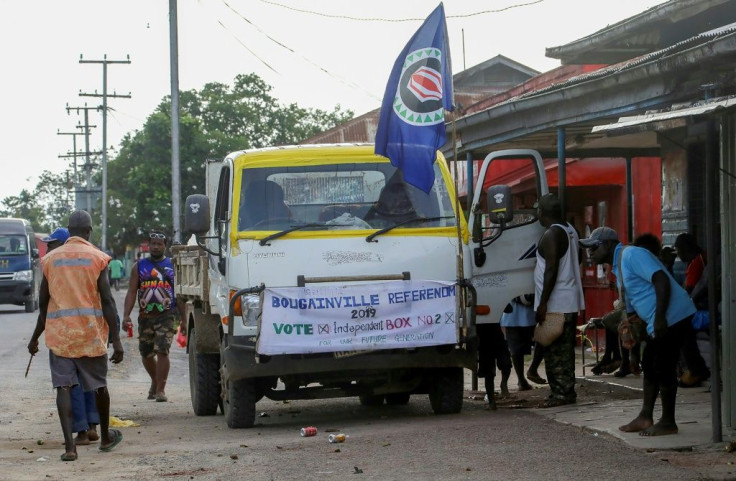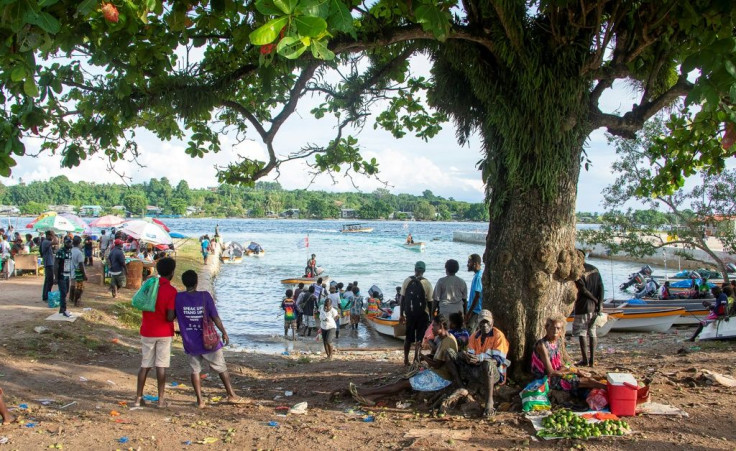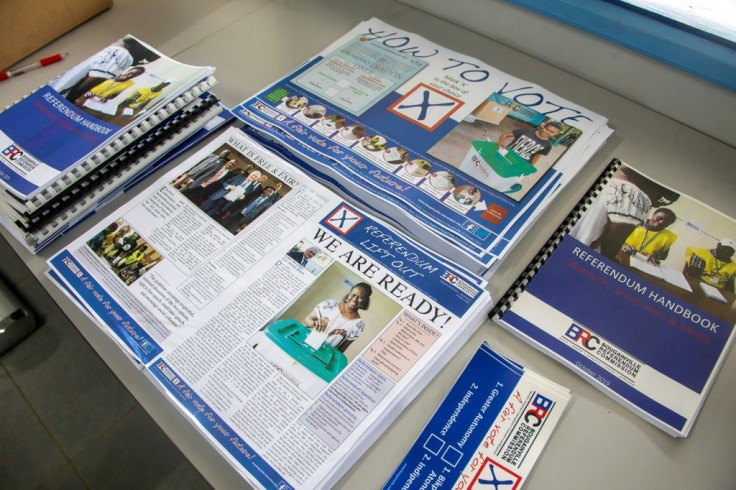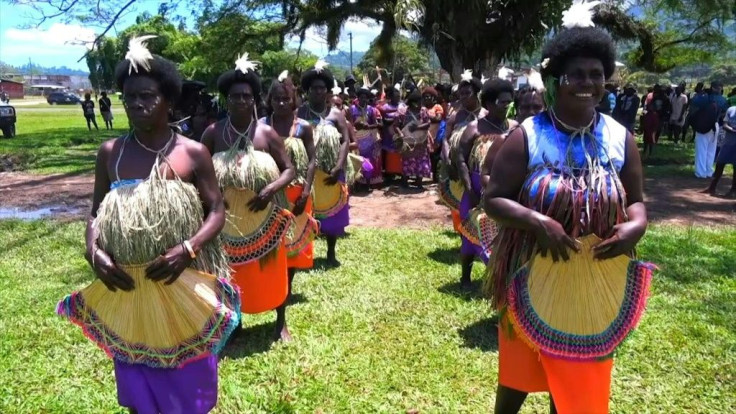Excitement Grips Bougainville On Eve Of Independence Vote
Flags touting independence flapped above the dusty streets of Bougainville Friday on the eve of a landmark referendum, as once rebel fighters voiced excitement they may achieve at the ballot box what they could not on the battlefield.
"I fired many bullets to protect my beloved Bougainville," said former rebel strongman Chris Uma as he looked ahead to Saturday's landmark vote on independence from Papua New Guinea.
"Now I have one last bullet remaining. This final bullet I'll fire it using my fingers... when I vote for Bougainville's independence."

Since French explorer Louis de Bougainville arrived on this palm-fringed Melanesian archipelago more than two hundred years ago, control has passed from Germany to Australia to Japan to the United Nations to Papua New Guinea.
Beginning on Saturday, 207,000 Bougainvilleans will decide whether to now take control of their own affairs and become the world's newest nation.
The vote is a cornerstone of a 2001 peace deal that ended a brutal decade-long war between rebels, Papua New Guinea security forces and foreign mercenaries that killed 20,000 people and displaced thousands more.
There are few reliable public opinion polls, so a surprise vote in favour of autonomy within Papua New Guinea is possible, but supporters of full independence are expected to win handily.

"Our forefathers wanted to become independent from Papua New Guinea a long time ago, and that same thought is with us today," former fighter Peter Batson told AFP.
The 62-year-old echoed the sentiment of many on the streets of the capital Buka Town, where a campaign blackout is in place but expectations are clear.
"We want to get our independence and rule our own island," vendor Nathaniel Klina said.

Many Bougainvilleans feel a closer cultural affinity to the nearby Solomon Islands, with a strong provincial identity that differs from the tribal factions of other regions of Papua New Guinea.
T-shirts promoting independence -- depicting the distinctive men's amphorae-shaped headdress called the "upe", and branded "black is beautiful" in a nod to darker complexion of which Bougainvilleans identify -- were selling fast at the market.
In the old capital Arawa, "referendum fever" has locals distributing Bougainville flags to every household, a large stage has been erected for traditional dance and pigs are being killed in villages to mark the event.
"It's like Christmas," Arawa resident Nancy Tomiets said of the festivities.

But the islands' troubled past still lingers. Ahead of voting that will last until December 7, once-sworn enemies have taken part in tearful reconciliation ceremonies, where arrows were snapped to symbolise the end of the conflict.
"Underlying this historic occasion is a resolve by all sides to honour the fallen, but never again return to conflict," former Irish prime minister Bertie Ahern, who chairs the Bougainville Referendum Commission, wrote ahead of the vote.
New Zealand is leading an international unarmed police contingent for the vote, backed by fellow witnesses to the 2001 peace agreement: Australia, Fiji, Solomon Islands and Vanuatu.
If voters do choose to leave Papua New Guinea, that decision would need ratification from the parliament in Port Moresby, where there is anxiety that Bougainville could set a precedent and spur independence movements within the diverse and fractured country.
But rejection would risk rekindling former feuds and skittling the peace process.
"We are conscious of the fears that the people have," Bougainville regional president John Momis said Friday, addressing concerns about uncertainty following the vote and touting a good working relationship with Port Moresby.
"With the way things are developing between the two governments, I am confident that we can deal with them in a way that will allay the fears," he said.
The 1988-1998 war had its roots in a struggle over revenues from the now-shuttered Panguna copper mine, which at one point accounted for more than 40 percent of Papua New Guinea's exports.
The mine is estimated to still hold more than five million tonnes of copper and 19 million ounces of gold -- worth billions of dollars at current market prices.
Who controls that wealth is likely to be vital in determining whether a newly born Bougainville succeeds.
"But sooner or later we have to deal with Panguna," he said.
© Copyright AFP 2024. All rights reserved.





















